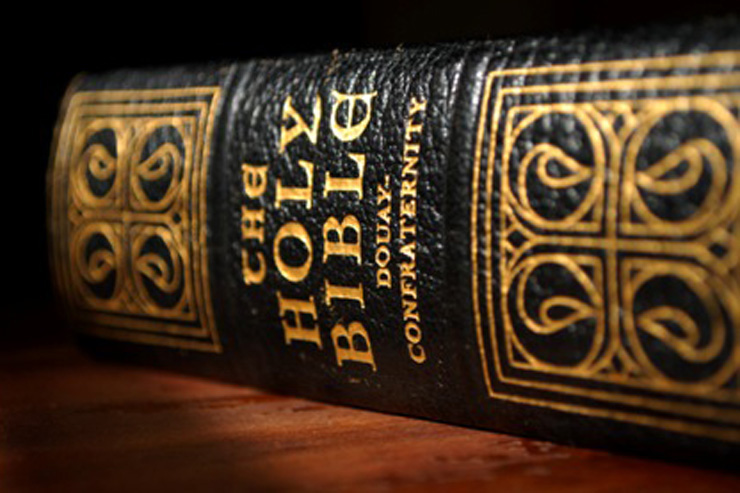Hasten the end…
by Marcellino D'Ambrosio, Ph.D. | November 14, 2015 12:04 am
 [1]
[1]Photography © by Andy Coan
Whenever I lead a trip to the Holy Land, the question inevitably comes, “Will we visit Armageddon?” This refers, of course, to the battlefield surrounding the ancient city of Megiddo where some think the final confrontation will take place before the end of the world (Rev 16:16). Catholics and Protestants alike have a fascination with the Scriptural accounts of the cataclysmic events associated with the end.
The Church, following the Scriptures, indeed teaches that Jesus will return in glory and this world as we know it will indeed come to a screeching halt, but not before a fierce, cosmic battle in which the Enemy makes his final bid for world domination (CCC 675-677).
But the last battle will not be the only battle.
The truth is that though nature’s four seasons continue to cycle serenely throughout the ages, and men and women, as in the days of Noah, continue to marry and be given in marriage, there is at the heart of history a continual battle going on. In fact, the battle began before human history, when Michael and his forces swept the legions of Lucifer out of heaven. There is a reason that we never get tired of love stories—love is of the essence of human life. There is also a reason that we never get tired of war stories—war has been our constant companion and will be so till the last trumpet.
Many are puzzled when trying to interpret passages like this Sunday’s gospel, not to mention the entire book of Revelation. Are Jesus and the inspired writers referring to the end of the world, or rather to the events happening in their own day, such as the destruction of Jerusalem and the persecution of the Church by the pagan Romans?
The answer is not an either/or but rather both/and. The Antichrist is a future figure who will come at the end. But he has also worn various masks over the course of time such as the Emperor Nero, Adolph Hitler, and Josef Stalin. Under the surface of history, the battle is raging. At certain moments, the fight takes center-stage in the evening news and battle lines become very clear—as in World War II or today’s abortion holocaust.
There are two big mistakes we could make here. One would be to smugly deny this view of things as just so much apocalyptic hysteria. The other would be to preoccupy ourselves with speculation over the future battle while neglecting to engage in the battle at hand. Innocent pre-born babies are being slaughtered on a daily basis; thousands of Christians are imprisoned and tortured worldwide because of their faith, millions are exploited economically, and a secularist propaganda machine mounts a relentless attack on marriage and chastity. Are we combatants in this struggle or do we sit by the sidelines reading the headlines?
Apocalyptic speculation is a waste of valuable time and energy. Jesus clearly says “as to the exact day or hour, no one knows it” (Mark 13:32). It is futile to try to figure it out. But denying the reality of the current conflict or leaving the combat to others is also a waste of precious time.
We pray for the glorious return of the Lord, for him to come and right all wrongs and bring deliverance and eternal reward. But our second reading says that “now he waits until his enemies are placed beneath his feet.” (Heb 10:13). Often a sneaky enemy will not show his true colors and unleash his full might until his back is up against the wall. The final victory will be something that only the Lord himself will accomplish. But it would seem that he will only come for the coup de grâce when we, the members of his body, by the power of his grace, have helped to paint the enemy into a corner through our evangelization, intercession, works of mercy, and social action.
The readings for the Thirty-third Sunday in Ordinary Time (Year B) are: Daniel 12:1-3; Psalms 16:5, 8, 9-10, 11; Hebrews 10:11-14, 18; Mark 13:24-32[2].
- [Image]: http://www.integratedcatholiclife.org/wp-content/uploads/biblespine-coan-featured-w740x493.jpg
- Daniel 12:1-3; Psalms 16:5, 8, 9-10, 11; Hebrews 10:11-14, 18; Mark 13:24-32: http://www.usccb.org/bible/readings/111515.cfm
Source URL: https://integratedcatholiclife.org/2015/11/dambrosio-hasten-the-end/